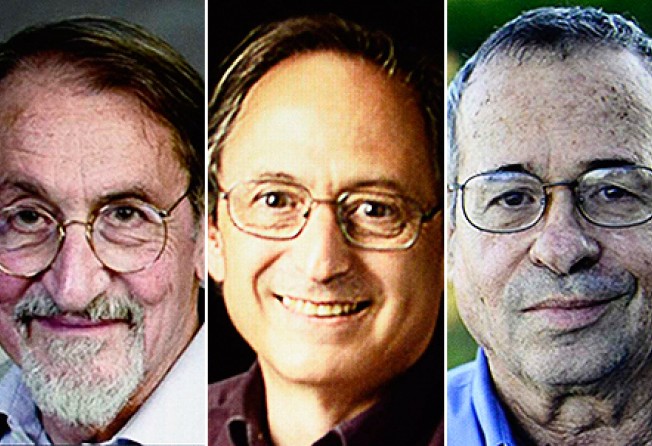Trio win Nobel Chemistry Prize for computer modelling work
Their research helps scientists develop programmes that unveil chemical processes

Martin Karplus, Michael Levitt and Arieh Warshel won this year's Nobel Prize in chemistry yesterday for laying the foundation for the computer models used to understand and predict chemical processes.
The Royal Swedish Academy of Sciences said their research in the 1970s had helped scientists develop programmes that unveil chemical processes such as the purification of exhaust fumes or photosynthesis in green leaves.
That kind of knowledge makes it possible to optimise catalysts for cars, drugs and solar cells, the academy said.
When scientists wanted to simulate complex chemical processes on computers they used to have to choose between software that was based on either classical Newtownian physics or quantum physics. But the academy said the three laureates developed computer models that "opened a gate between these two worlds."
The strength of their methods is that they can be used to study all kinds of chemistry, it said.
Karplus, 83, a US and Austrian citizen, is affiliated with the University of Strasbourg in France and Harvard University. The academy said Levitt, 66, is a British, US and Israeli citizen and a professor at the Stanford University School of Medicine. Warshel, 72, is a US and Israeli citizen affiliated with the University of Southern California in Los Angeles.
Warshel told a news conference in Stockholm by telephone that he was "extremely happy" to be awakened in the middle of the night in Los Angeles to fbe told that he had won the prize, and looks forward to collecting the award in the Swedish capital in December.
Levitt, speaking from his California home, said he felt like he had a "triple espresso" after being informed that the prize was his for research done decades ago.
"I was doing work before my post doc when I was 20 years old to write a computer programme. I guess I wrote a pretty good programme," Levitt chuckled.
"I thought I was dreaming. My cell phone never rings. I usually only get text messages or e-mails. At first I thought it was a wrong number," he said of the call.
Many drug companies use computer simulations to screen substances for their potential as medicines, which lets them focus their chemistry lab work on those that look promising, he said.
Marinda Li Wu, president of the American Chemical Society, was equally enthusiastic about the award.
"I think it's fabulous," she said. "They're talking about the partnering of theoreticians with experimentalists, and how this has led to greater understanding."
Additional reporting by Agence France-Presse